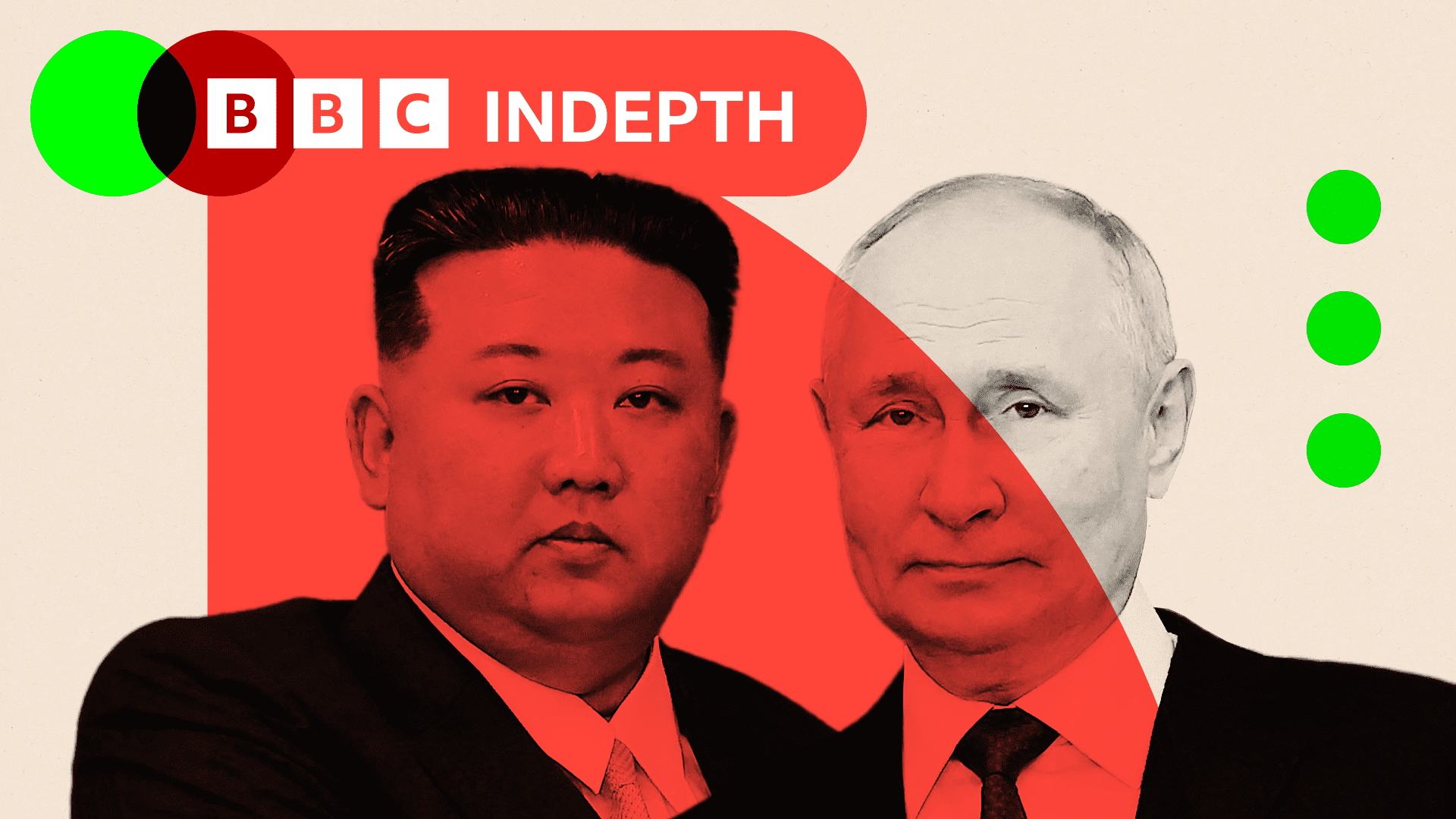North Korea's Benidorm-style resort welcomes first Russian tourists

- Published
A new beach resort in North Korea, criticised by human rights groups for the harsh treatment of construction workers, has welcomed its first group of Russian tourists this week.
The Wonsan Kalma resort was opened in a grand ceremony last month by North Korea's leader, Kim Jong Un, who hailed it as a "world-class tourist and cultural destination".
The details of how this resort was built have been shrouded in secrecy in a country largely closed to the outside world.
BBC Verify has studied satellite imagery, obtained internal planning documents, and spoken to experts and former North Korean insiders about their concerns over human rights abuses during the development of the site.
Echoes of Benidorm
Kim Jong Un spent much of his youth in Wonsan, and prior to the building of the new resort the town was a popular holiday destination for the country's elite.
"When the Wonsan tourist area was initially planned… the idea was to attract around one million tourists to the area while keeping it a closed-off zone," says Ri Jong Ho, a senior North Korean economic official involved in the resort's early planning stages and who defected in 2014.
"The intention was to open North Korea up a bit."
In 2017, a year before construction began, Kim sent a delegation on a fact-finding mission to Spain, where the team toured the resort of Benidorm.
The North Korean delegation "included high ranking politicians and many architects who took lots of notes," recalls Matias Perez Such, a member of the Spanish team that hosted the delegation on a tour including a theme park, high-rise hotels and a marina.
A North Korean brochure with a map of the resort has 43 hotels identified along the beach front, as well as guest houses on an artificial lake, and camping sites.
We've matched these locations with high-resolution satellite imagery, although we are unable to verify whether they have actually been completed.
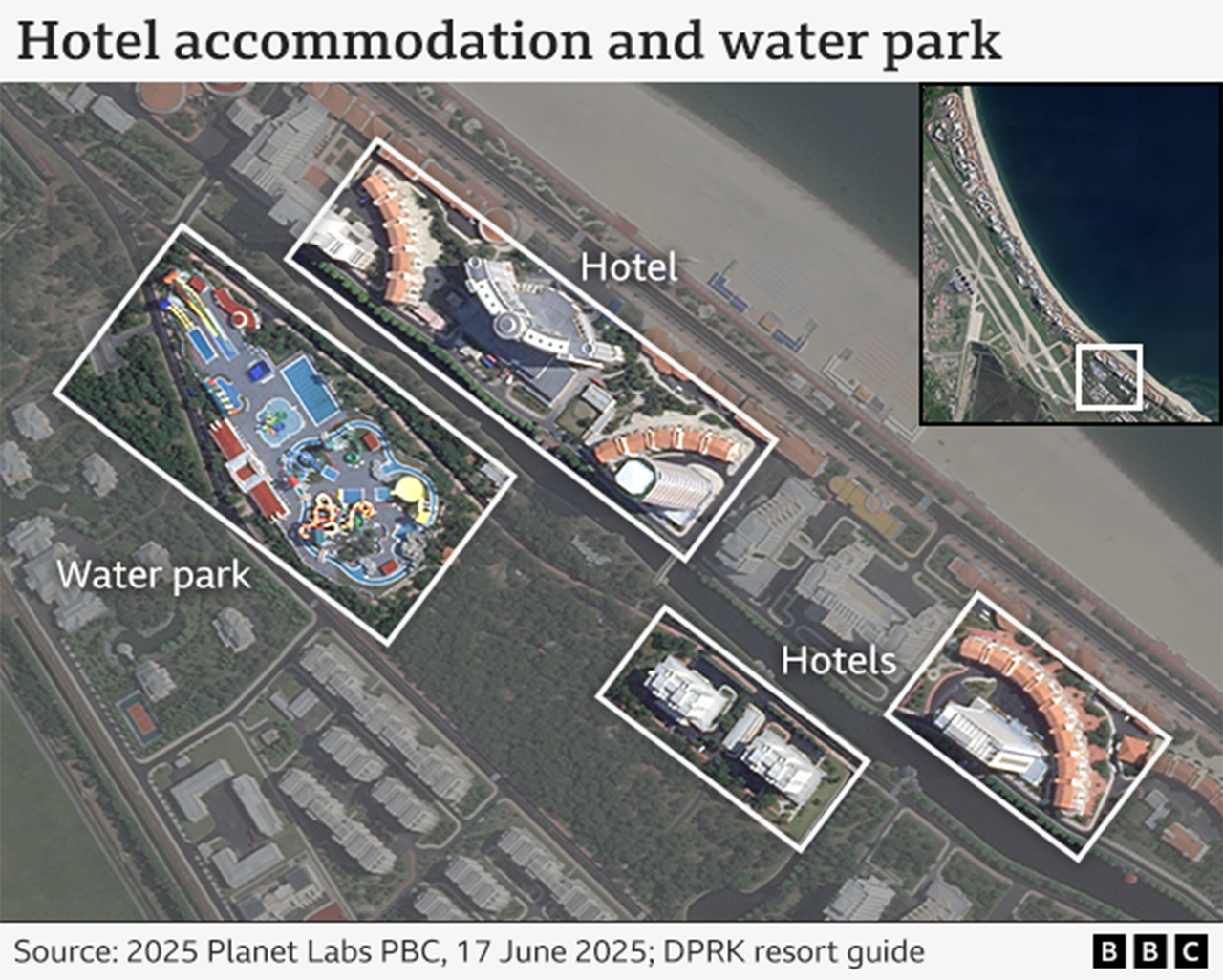
An aquatic park, complete with towering yellow water slides, is set back from the beach.
Further north, there's an entertainment quarter which includes buildings that are identified in the plan as a theatre, recreation and fitness centres, and a cinema.
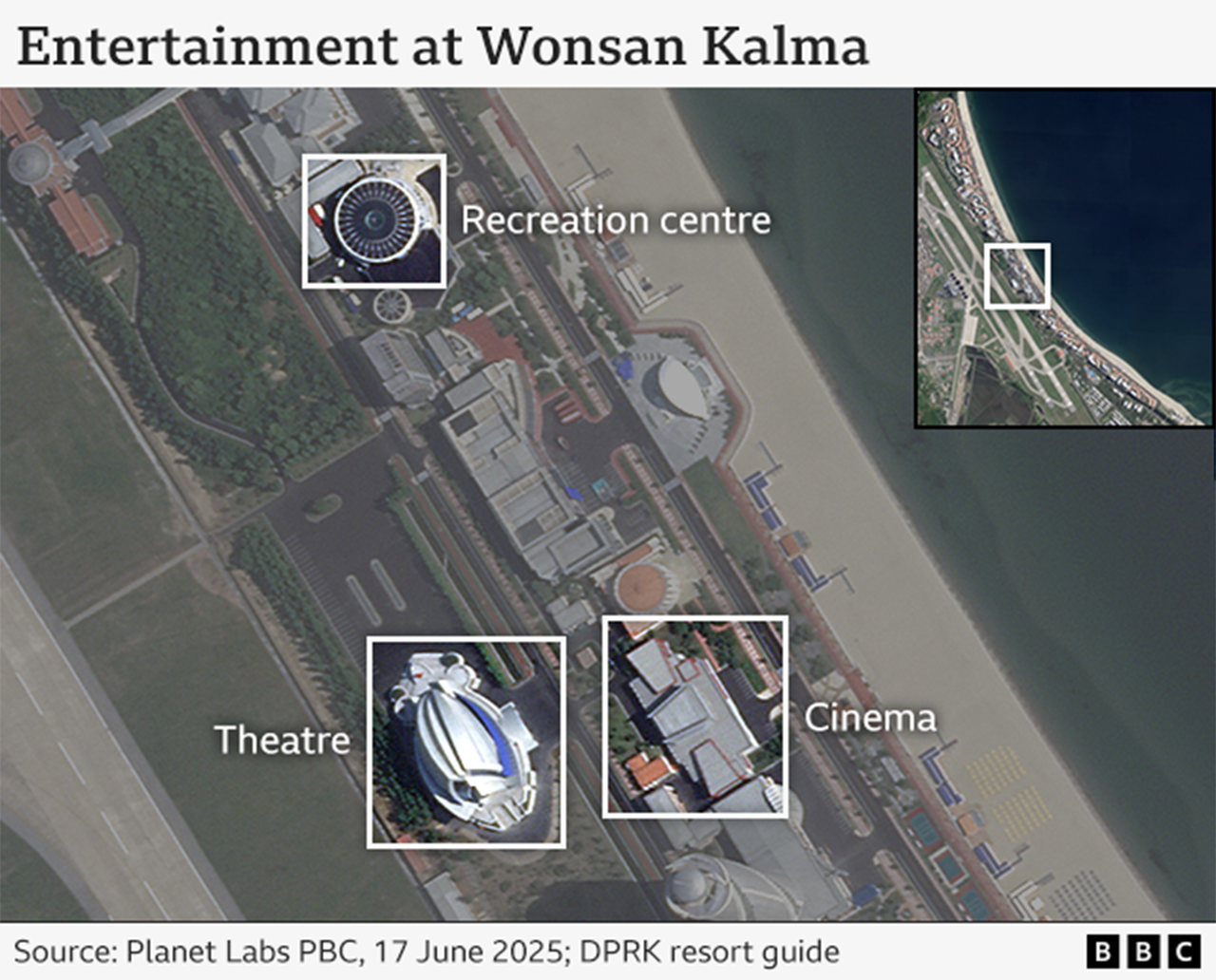
Beginning in early 2018, satellite images taken over 18 months reveal dozens of buildings springing up along the 4km (2.5 mile) stretch of coastline.
By the end of 2018, around 80% of the resort had been completed, according to research carried out by satellite imagery firm, SI Analytics, based in South Korea.
However, following this whirlwind construction effort, work on the site then appears to have paused.
Time-lapse of the Wonsan Kalma resort's construction
Construction then resumed after a June 2024 meeting with Kim and Vladimir Putin, where the Russian president said he would encourage his citizens to visit North Korea's holiday resorts.
The human cost of construction
This rapid pace of construction has raised concerns over the treatment of those working at the site.
The UN has highlighted a system of forced labour used in North Korea, in particular "shock brigades" where workers often face harsh conditions, long hours, and inadequate compensation.
James Heenan of the UN Human Rights Office in Seoul says "there are reports that the resort was built using what they call shock brigades".
"We've also seen reports that people were working 24 hours at the end to get this thing finished, which sounds like a shock brigade to me."
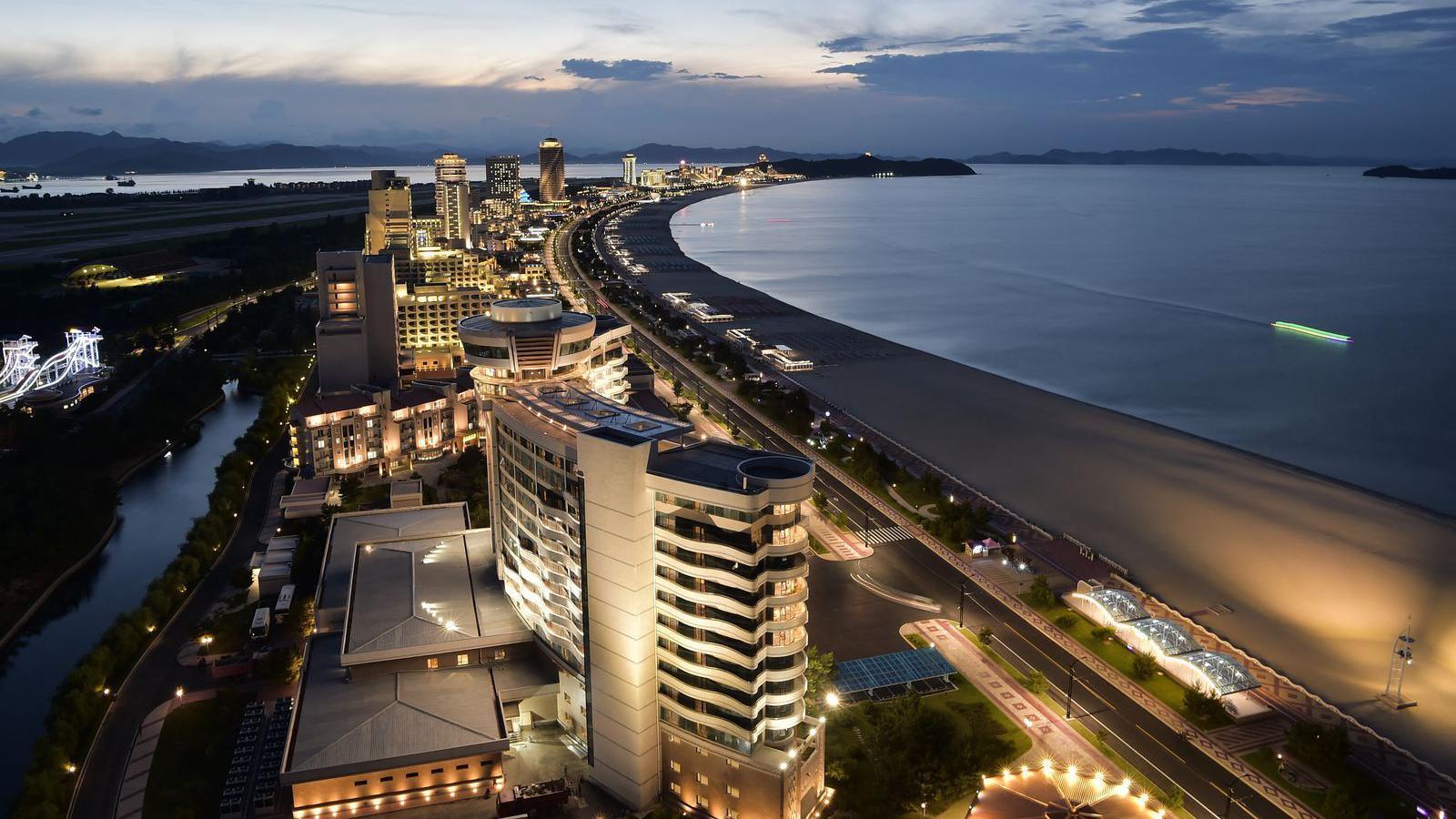
Dozens of high-rise buildings have been constructed along the beach front
The BBC has spoken to one North Korean who served in and eventually managed shock brigades.
Although Cho Chung Hui - who has subsequently defected - wasn't involved in the construction of the Wonsan resort, he recalled the brutal conditions of the brigades he oversaw.
"The principle behind these [brigades] was that no matter what, you had to complete the task, even if it cost you your life," he said.
"I saw many women who were under so much physical strain and eating so poorly that their periods stopped altogether."
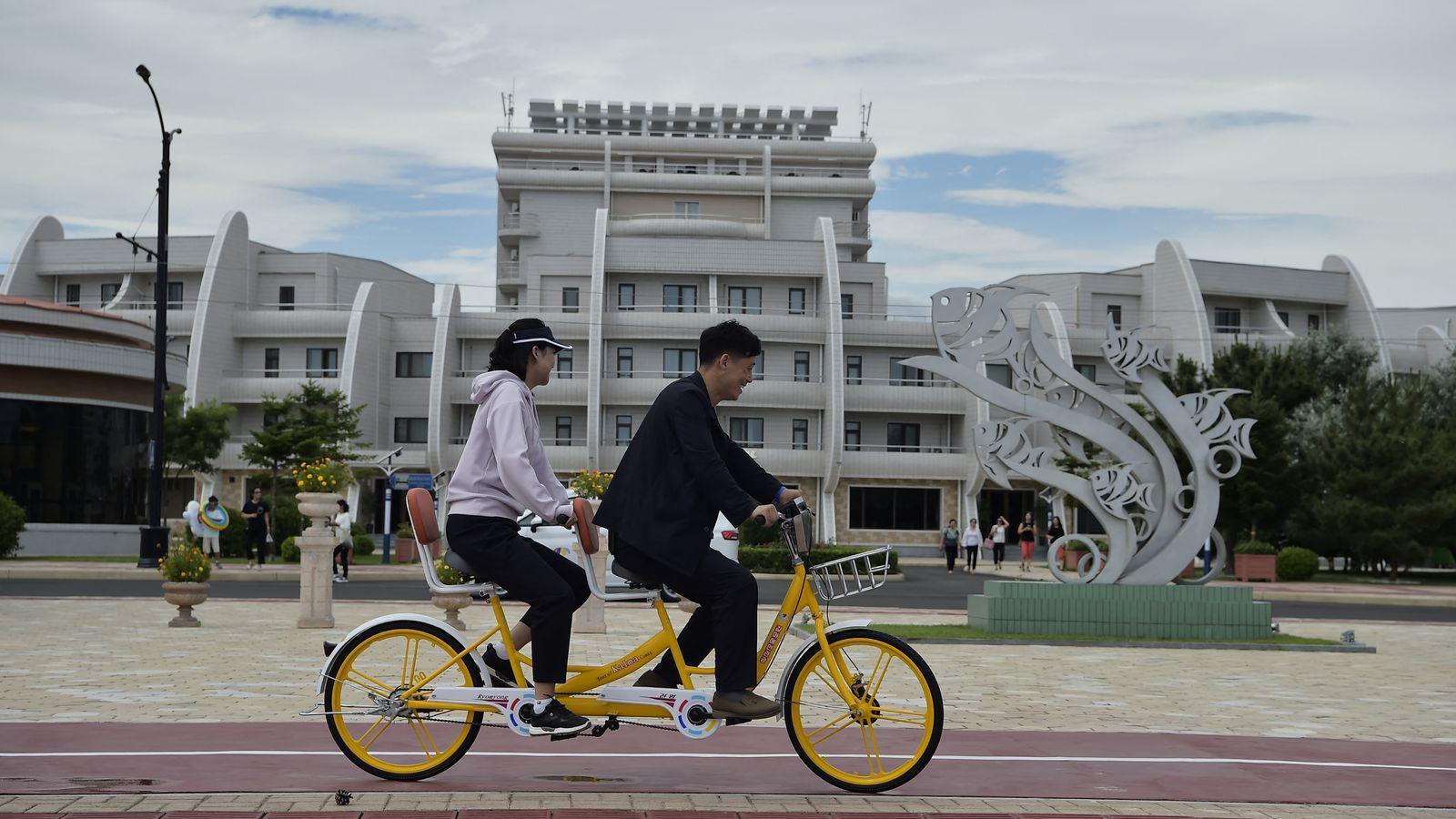
Beach front hotels were built at great speed raising concerns over conditions for construction workers
Kang Gyuri, who worked in Wonsan before fleeing to South Korea in 2023, says her cousin volunteered to work on the construction site because he saw it as a pathway to residency in the country's capital of Pyongyang, which is reserved for citizens trusted by the regime.
"He could hardly sleep. They [didn't] give him enough to eat," she said.
"The facilities are not properly organised, some people just die while working and they [the authorities] don't take responsibility if they fall and die."
Ms Kang also said residents in Wonsan were driven out from their homes as the resort project expanded, often without compensation.
Though not specific to Ms Kang's experience, BBC Verify was able to identify through satellite analysis the demolition of buildings near a main road leading towards the resort. In their place, larger tower blocks are now visible.
"They just demolish everything and build something new, especially if it's in a good location," Ms Kang said.
"The problem is, no matter how unfair it feels, people can't openly speak out or protest."
The BBC reached out to North Korean officials for comment.
Where are the foreign tourists?
North Korea has been almost entirely closed to foreign visitors with only a few highly-controlled tours permitted to visit the country in recent years.
Wonsan Kalma is seen not only as playing an important role in reviving the sanctioned country's ailing economic fortunes, but also as a means of strengthening its ties with Russia - which have grown closer following Pyongyang's military support for Moscow's war in Ukraine.
According to early planning documents seen by BBC Verify, the initial goal was to attract more than a million visitors, with foreign tourists expected to mainly come from China and Russia.
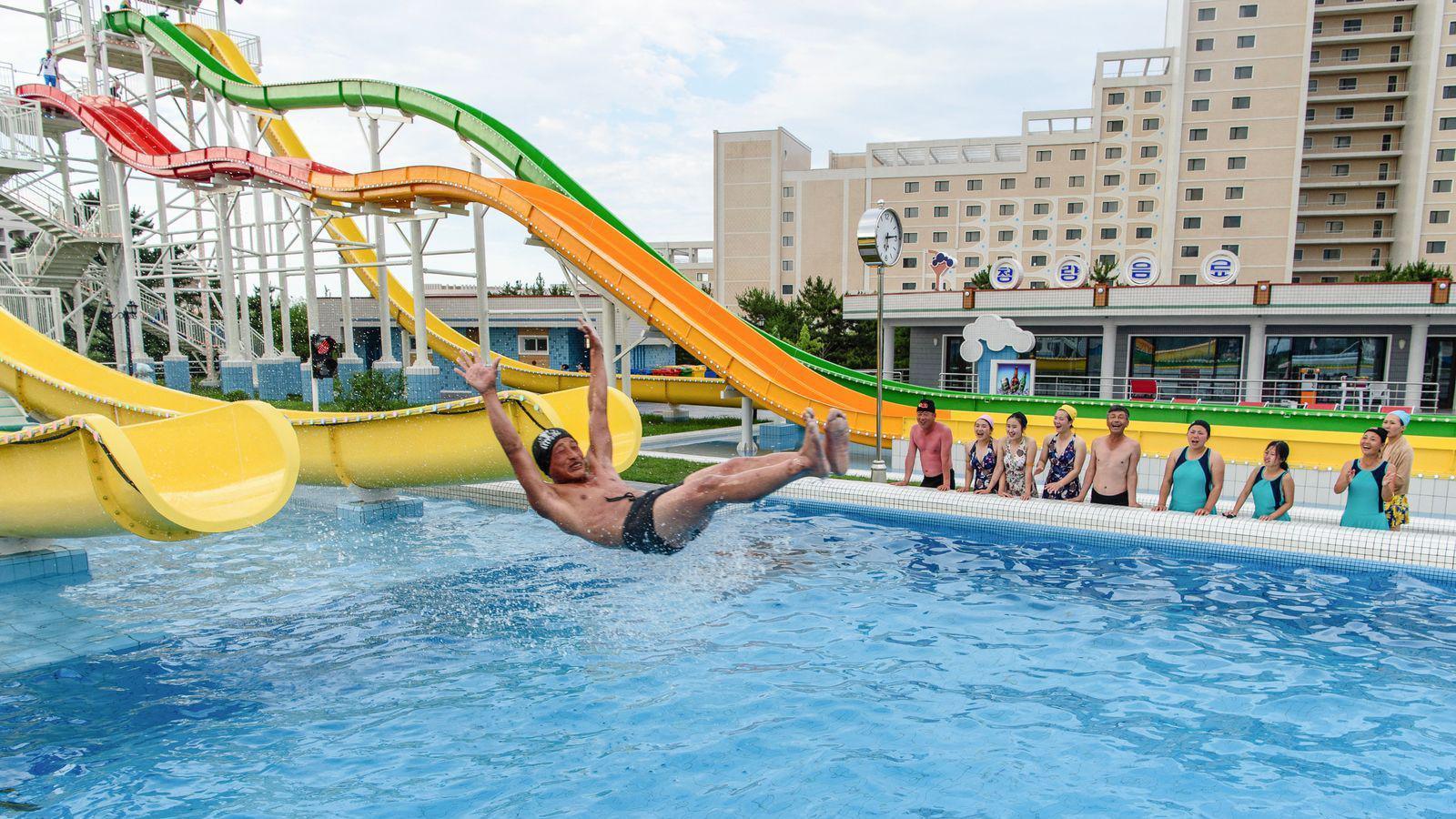
The resort opened to North Korean tourists at the end of June
We have scanned tourist agency sites both in China and Russia for any listings promoting trips to the new resort.
None of the Chinese agencies we checked were advertising trips to Wonsan. In Russia, however, we identified three agencies offering tours that included Wonsan Kalma.
We called one of the Russian agencies in early July posing as an interested customer a week before its first scheduled departure on 7 July and were told that it had attracted 12 people from Russia.
The week-long trip to North Korea, including three days at the Wonsan resort, cost $1,800 (£1,300) - that's 60% more than the average monthly salary in Russia.
Two further trips have been scheduled for August, according to this tour operator.
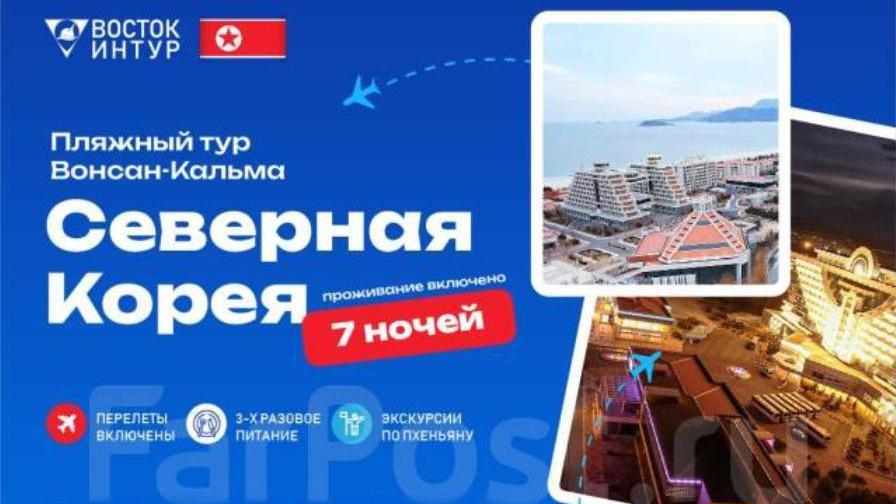
A week's tour of North Korea costs a Russian traveller around $1,800 (£1,300)
We contacted the other two agencies offering similar tour packages, but they declined to disclose how many people had signed up.
Andrei Lankov, an expert in Russian-North Korean relations at the Kookmin University in Seoul, said Wonsan Kalma was "highly unlikely to become seriously popular with Russian visitors".
"Russian tourists can easily go to places like Turkey, Egypt, Thailand and Vietnam, which are far superior to everything North Korea can develop," he said.
"The standards of service are higher and you are not put under constant supervision."
Additional reporting by Yaroslava Kiryukhina, Yi Ma and Cristina Cuevas. Graphics by Sally Nicholls and Erwan Rivault.

- Published6 March
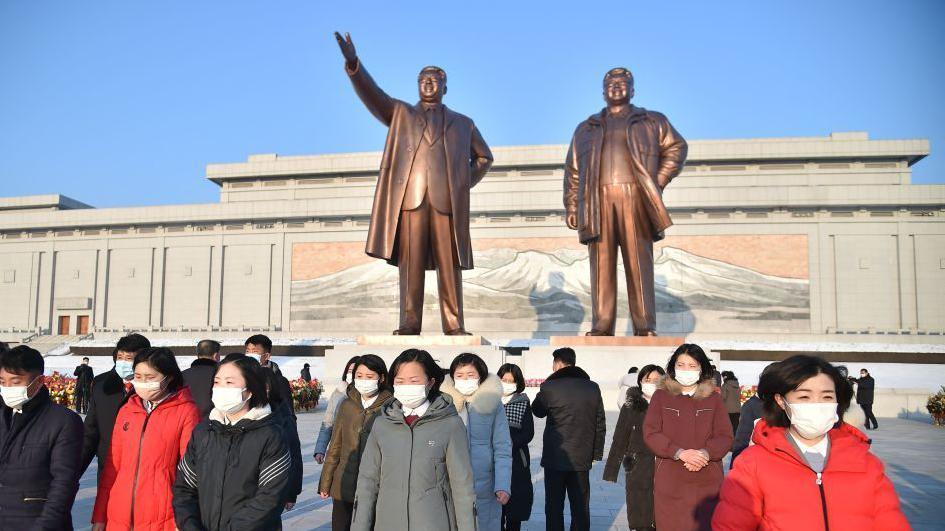
- Published8 October 2024
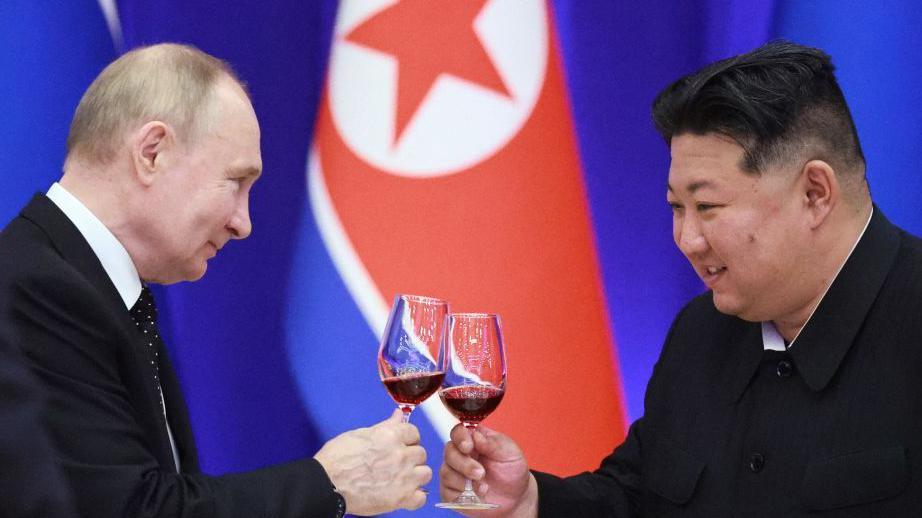
- Published19 June 2024
